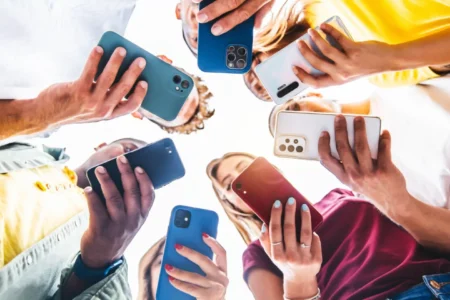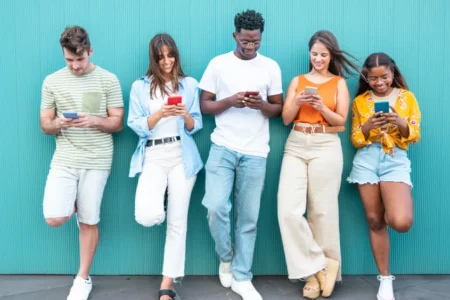Gen Z isn’t just cancelling “good vibes only” — they’re rebuilding the straight-talk language of mental health, one painfully honest post at a time. Gone are the days of self-care defined as cucumber slices on eyes and candlelit baths. Now, it means cancelling toxic friendships, learning how to say no without guilt, prioritizing therapy over brunch in the budget, and deleting the app and getting off-line when it’s too much on-line. “We don’t want pretty. We want real,” says Aanya Bhattacharya, 20, an artist in Kolkata, India, who regularly posts her raw sketches about anxiety attacks and intrusive thoughts – without filter or font overlay. “My mental health doesn’t have an aesthetic. It has triggers and scars.” What’s Actually Working?Therapy-Tok & Unfiltered Talk: Creators are defining new ground by going beyond self-care tips and openly discussing trauma bonds, emotional regulation, generational baggage and strategies for CBT. Accounts run by a licensed therapist and psychology students are gaining traction, not on gimmicks, but on grounded and relatable advice. Meaningful Memes: Surprisingly, one of the most effective vehicles of this movement? Memes. From “crippling anxiety starter packs” to “trauma response bingo,” dark humor is empowering Gen Z to express what they have been taught to suppress. And it’s working – because sometimes laughing at the pain helps you process it. So What Now? The future of Gen Z’s mental health revolution is not to stop using digital tools – it’s to use them thoughtfully. Therapists as influencers. Content-creating mental health professionals are increasingly becoming important bridges from awareness to action. Be it TikTok skits or Instagram infographics, their presence adds a level of expertise to the conversation. Offline support circles. Gen Z is starting to learn that healing does not always need to happen in public. Support groups, therapy pods, community care meet ups, and “venting clubs” are becoming more and more popular as safe offline avenues to express their emotions. As this generation of WiFi-native anxiety sufferers goes forth, they are creating something never seen in the world before: a mental health culture that is messy, honest, compassionate – and most importantly human. Keep reading Foramz for your daily dose of Moral support.
The Beginning: From Hashtags to Honesty, Gen Z is calling out the glossy nature of mental health awareness Gen Z is taking action, saying “stop” to the pastel-fueled quotes proclaiming that every problem can be solved with a “just smile through it” attitude. The phrase “Mental health is not a trend” is starting to be spread across platforms such as TikTok, X (Twitter), and Instagram, where users (mostly aged 18-25) are calling out what they perceive to be toxic positivity disguised as wellness advocacy. Individual accounts that started as a couple of viral videos calling out “good vibes only” have morphed into a digital rebellion, bringing attention to these mental health trends. Okay, but what is Toxic Positivity? Toxic positivity is defined as a form of overgeneralization of a happy, optimistic state in which one denies, minimizes, and invalidates emotions that are unavoidably a part of the human experience. “Every time I ever said I was anxious or depressed- people would just say, ‘don’t worry, be happy!’ Like.. bro, that’s not therapy, that’s denial,” said 19-year-old Priya Kapoor, a psychology student from Pune, in a trending Instagram reel. The Internet Is Ironic: Likes Versus Lives The issue, as many people see it, is the Instagrammification of mental health. Bath bombs, aesthetic mood boards, and journal prompts are now ubiquitous—but therapy bills? Systemic issues? Trauma? Not so much. Issue critics argue that all these online trends related to mental health and wellness are dangerous in their oversimplifications. “If someone posts a selfie crying with #MentalHealthAwareness but never mentions therapy, coping strategies, or any real emotion, what are we actually doing?” says Sana Rizvi, a 21-year-old sociology major. But Gen Z isn’t just calling out the improprieties—they’re reclaiming the conversation. Across platforms, hashtags such as #MentalHealthIsNotAesthetic, #StopToxicPositivity, and #ItsOkayToNotbeOkay have begun to trend. Videos mocking overly positive “self-help influencers” have gone viral—not to ridicule the wellness industry, but to demand authenticity. This new movement of online content doesn’t shy away from dark days, breakdowns, or emotional messiness. Rather, it emphasizes vulnerability as strength. Many young creators now share their healing journeys as open diaries— with therapy, medication, community care, and boundaries at the forefront. To Be Continued in Part 2: Gen Z’s Mental Health Revolution — What’s Working, What’s Not, and Where We Go From Here… KEEP READING FORAMZ.COM FOR MORE UPDATES


